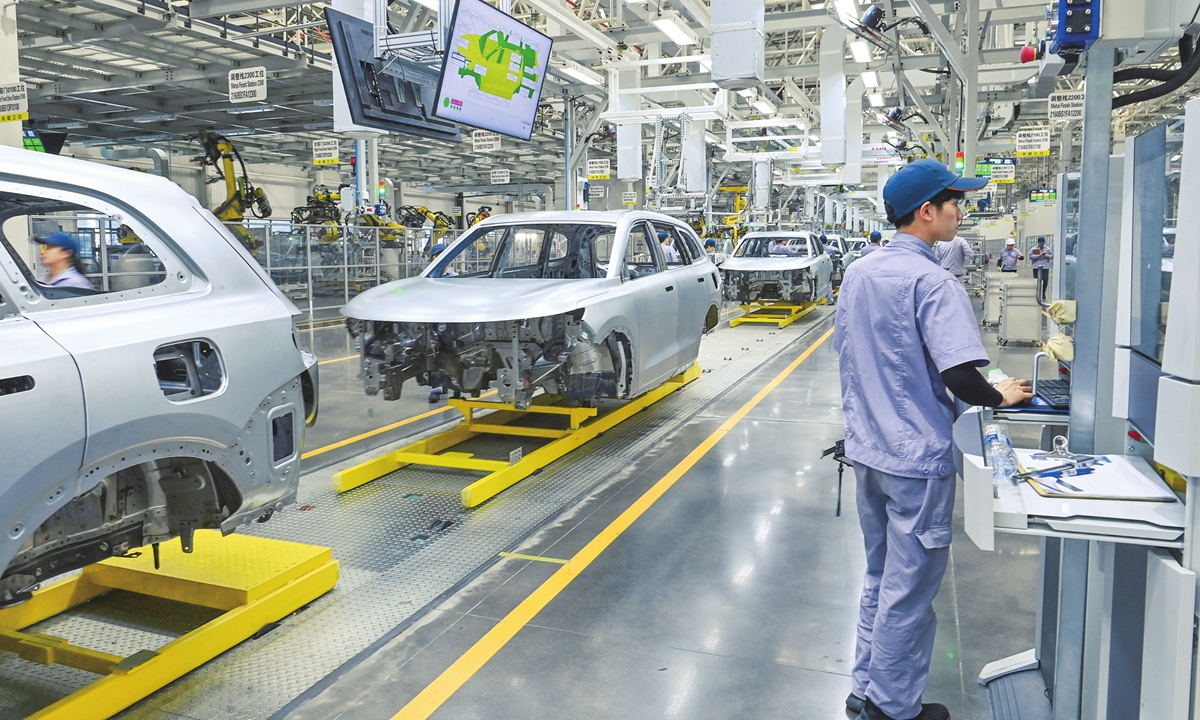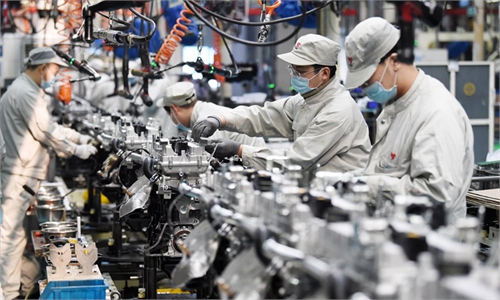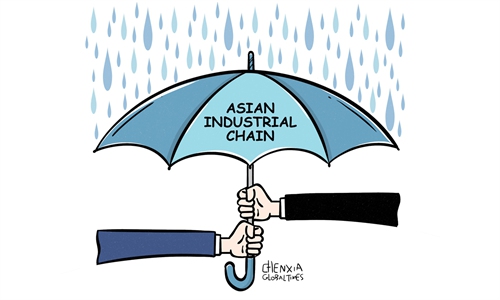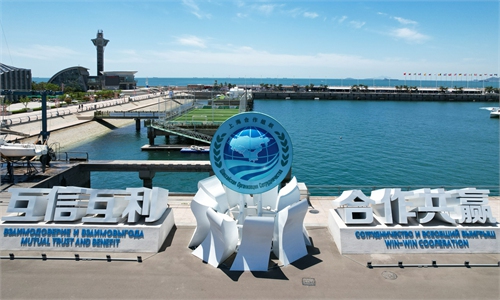
The manufacturing line of a NEV factory Photo: VCG
As a restructuring of the global industrial chain seems to have accelerated amid the COVID-19 pandemic, the Russia-Ukraine conflict and the US' "decoupling" maneuver, there is a rising need for China, the world's largest manufacturing hub, to stabilize and promote a rapid recovery of the country's industrial chain from the fallout of a recent coronavirus flare-up.At present, the surge in Omicron outbreaks is causing disruptions to the industrial chain. Coupled with the US' continuous technology crackdown and stranglehold on China, "production transfer out of China or diversifying supply chains" has become a hot topic of discussion.
Under these circumstances, it is more urgent than ever for China to restore the normalcy to its industrial chains so as to consolidate its position as the world's largest manufacturing hub and prove its ability to keep cooperating across the global supply chains.
Take the semiconductor industry as an example. In order to contain China's development and dominate the global semiconductor industry, the US has introduced strict curbs on exports of semiconductor-related technology and advanced products to China, which has produced adverse impact on the industry.
According to a Financial Times report on Sunday, Tokyo-based chip equipment supplier Ferrotec, which produces ceramics and silicon parts used in chips, was accelerating plans to expand production outside China, in response to requests from US clients including Lam Research and Applied Materials.
While it is, to some extent, understandable that a few companies may seek to diversify their supply chains under the US government's coercion, it should be noted that China's advantages of comprehensive industrial chain support and concentrated production have enabled companies to improve efficiency and reduce costs, which is why Ferrotec makes 80 per cent of its products in China. If more companies choose to diversify production chains like Ferrotec, one immediate consequence for the whole industry will be increased fragmentation across supply chains and ultimately higher costs.
No matter how foreign companies choose to do, China needs to be more focused than ever on doing its own things well. In the face of the US' relentless crackdown, China needs to show the world that it is not only the largest market for semiconductors, but is also capable of opening up wider and adhering to closer cooperation with the rest of the world. This is because the semiconductor industrial chain is so long that no single country can re-establish an independent industrial chain separate from the rest of the world.
The same logic applies not only to the chip sector, but also many other industries, which is why China's industrial chain development must stick to the path of globalization and win-win cooperation.
To ensure such cooperation, China's manufacturing sector must shrug off the impact of the recent COVID-19 flare-up and accelerate the recovery as soon as possible.
Meanwhile, it is also essential for China to consolidate its advantages in manufacturing, which is the foundation of the Chinese economy. In recent years, despite the US-China trade frictions and the impact of the pandemic, China's share in the global trade has been constantly on the rise. In 2021, the value of global trade reached a record high of $28.5 trillion in 2021, while China's total trade was $6.06 trillion, accounting for 21.26 percent of global trade.
Facing the acceleration of global industrial chain restructuring, China needs to preserve its advantages in the global manufacturing system through strengthened innovation as well as more investment on research and development.
In terms of new technologies and the standards-setting, it is necessary to strengthen cooperation and explore long-term and stable upstream and downstream cooperation mechanism with other parties. Also, when it comes to the development of new emerging industries, high-end talent pool is needed to consolidate China's premium advantage in ensuring industrial chain stability.



